Unfortunately, I didn't quite get as fast as I wanted to be - so I will leave the question open in case someone knows a better answer.
Where did the problem originate.
I was looking into how to implement inclusive scan in-place on top of AVX2 SIMD extensions. My solution is entirely based on: @Zboson answer.
[a b c d ]
+ [0 a b c ]
= [a (a + b) (b + c) (c + d) ]
+ [0 0 a (a + b) ]
= [a (a + b) (a + b + c) (a + b + c + d) ]
Every one range algorithm that I implemented before worked well with the following iteration pattern (sudo code):
auto aligned_f = previous_aligned_address(f);
auto aligned_l = previous_aligned_address(l);
ignore_first_n ignore_first{f - aligned_f};
if (aligned_f != aligned_l) {
step(aligned_f, ignore_first); // Do a simd step, ignoring everything
// between aligned_f and f.
aligned_f += register_width;
ignore_first = ignore_first_n{0};
// Big unrolled loop.
main_loop(aligned_f, aligned_l);
if (aligned_f == aligned_l) return;
}
ignore_last_n ignore_last {aligned_l + register_width - l};
ignore_first_last ignore = combine(ignore_first, ignore_last);
// Do a simd step, ignoring everything between aligned_l and l.
// + handle the case when register is bigger than the array size.
step(aligned_l, ignore);
(If you do not know why it's OK to do this - see).
As both @PeterCordes and @PaulR mentioned, if you change the iteration pattern - mixin some of the other values and do a plain unaligned store and this is probably what I'll have to do. Then you can do at most one true masked store - only when register does not fit completely.
However, that is more assembly generated and I was not sure if I implemented store(address, register, ignore) in the most efficient way possible - hence was my question.
UPDATE: did try this, even without mixing anything in, you can just first load 2 overlapping registers and then store them back. Made things slightly worse. This does not seem to be a good idea, at least for inclusive scan.
Measurements
The fast enough I defined as "beat the scalar version on 40 bytes of data" - 40 chars, 20 shorts and 10 integers. You might notice that 40 bytes > then the register size - so I would have to add an even smaller measurement for a more complicated iteration pattern.
I show the measurements for 2 cases <256, 1> - use 256 bit regestisters, no unrolling, <256, 2> - unroll the main loop twice.
NOTE: In benchmarks I account for possible code alignment issues by aligning benchmarking code in 64 different ways and picking minimum value.
_mm_maskmoveu_si128
Originally I went with _mm256_maskstore for sizeof(T) >= 4 and 2 _mm_maskmoveu_si128 for the rest.
This, as you can see - performed extremely poor - for char we loose to the scalar code about 10 times, about 20 times for short and 2 times for int.
Use memcpy for char and short
I tried a few different things: use _mm256_maskstore for short, memcpy for int, write my own inline memcpy for my this case. The best i got was: memcpy for char and short and maskstore for int.

It's a win for char, couple of nanoseconds difference between using no unrolling and unrolling twice, about a 30% loss for short and a 50% loss for int.
So, at the very least with my implementation of store(ptr, reg, ignore) I need to do a different iteration pattern if I don't want to peel loops.
Listing for store(addr, reg, ignore)
NOTE: I removed wrappers and adapters, might have added a few bugs.
// Only showing one ignore_broadcast, they are very similar and
// are actually generated with templates
template <register_256 Register, std::same<int> T>
inline __m256i ignore_broadcast(ignore_first_n ignore) {
__m256i idxs = _mm256_set_epi32(7, 6, 5, 4, 3, 2, 1, 0);
__m256i n_broadcasted = _mm256_set1_epi32(ignore.n - 1);
return _mm256_cmpgt_epi32(idxs, n_broadcasted);
}
template <template Register, typename T, typename Ignore>
void store(Register reg, T* ptr, Ignore ignore) {
if constexpr (sizeof(T) >= 4) {
const auto mask = ignore_broadcast<Register, T>(ignore);
_store::maskstore(ptr, mask, reg);
return;
}
std::size_t start = 0, n = sizeof(reg) / sizeof(T);
if constexpr (std::is_same_v<Ignore, ignore_first_n>) {
start += ignore.n;
n -= ignore.n;
} else if constexpr (std::is_same_v<Ignore, ignore_last_n>) {
n -= ignore.n;
} else {
static_assert(std::is_same_v<Ignore, ignore_first_last>);
start += ignore.first_n;
n -= ignore.first_n + ignore.last_n;
}
// This requires to store the register on the stack.
std::memcpy(raw_ptr + start, reinterpret_cast<T*>(®) + start, n * sizeof(T));
}
What does memcpy do
This is the memcpy that gets called.
It implements copy for under 32 bytes in the following way:
#if VEC_SIZE > 16
/* From 16 to 31. No branch when size == 16. */
L(between_16_31):
vmovdqu (%rsi), %xmm0
vmovdqu -16(%rsi,%rdx), %xmm1
vmovdqu %xmm0, (%rdi)
vmovdqu %xmm1, -16(%rdi,%rdx)
ret
#endif
L(between_8_15):
/* From 8 to 15. No branch when size == 8. */
movq -8(%rsi,%rdx), %rcx
movq (%rsi), %rsi
movq %rcx, -8(%rdi,%rdx)
movq %rsi, (%rdi)
ret
L(between_4_7):
/* From 4 to 7. No branch when size == 4. */
movl -4(%rsi,%rdx), %ecx
movl (%rsi), %esi
movl %ecx, -4(%rdi,%rdx)
movl %esi, (%rdi)
ret
L(between_2_3):
/* From 2 to 3. No branch when size == 2. */
movzwl -2(%rsi,%rdx), %ecx
movzwl (%rsi), %esi
movw %cx, -2(%rdi,%rdx)
movw %si, (%rdi)
ret
So basically - take the biggest register that fits and do two overlapping stores.
I tried to do that inline - calling memcpy was faster - maybe I didn't do right though.
Assembly and code
Reading my code might be a bit tricky, especially because I'm relying on eve library that is not yet open-source.
So I compiled and published couple of assembly listings:
Complete assembly for int, no unrolling
Complete assembly for short, no unrolling
My code can be found here
PS: Measuring big size
If you are interested, on a big enough array doing this type of vectorisation is a good win. On 10'000 bytes for example.

About 5 times for chars, 3 times for shorts and 2 times for ints.
PS: On unrolling
I didn't come up with some clever unrolling. The very basic unrolling twice gives about 10% win for 10000 bytes of short. Unrolling more didn't help.
The reason why the win is this small, I suspect, is because the algorithm is quite complicated.






